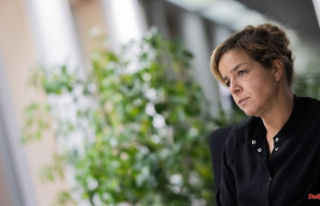In the first years of Corona, Christmas and New Year's Eve celebrations were a topic of fear. This year the RS virus is added and the flu is back. How should citizens behave? Prime Minister Wüst sees no reason for politicians tips.
Düsseldorf (dpa / lnw) - Citizens in North Rhine-Westphalia do not have to expect stricter corona rules in the coming winter weeks. "People now have a high level of routine in dealing with the corona virus," said Prime Minister Hendrik Wüst (CDU) of the German Press Agency in Düsseldorf. "That's why you don't need any behavioral recommendations from politicians, especially for the private sector," he said, especially with a view to Christmas and New Year's Eve.
The guidelines for the state government remained the recommendations of the Robert Koch Institute (RKI) this winter. "We've done well with that in the past," summed up the head of government of the most populous federal state.
"Of course I wish that we all take good care of each other - not just at Christmas and New Year's Eve." Anyone who has symptoms should take a test, he advised the citizens. "Avoiding contagion, whether with Corona, RSV or the flu, protects our loved ones." In this way, the employees in the hospitals would not continue to be burdened. In the past few years, they almost always had to go beyond their limits and fight an acute wave of infections again.
An updated Corona Protection Ordinance has been in force in NRW since Friday. Unlike several other federal states, NRW remains cautious and adheres to the obligation to wear a medical mask (surgical mask) until further notice. However, the test regulations for visits to hospitals, nursing homes or prisons have been relaxed. According to the Federal Infection Protection Act, FFP2 masks are mandatory for long-distance trains and long-distance buses at least until April 7, 2023.
According to the latest figures from the RKI, around nine million people in Germany are currently suffering from an acute respiratory infection, including corona, flu and the respiratory syncytial virus (RSV).












